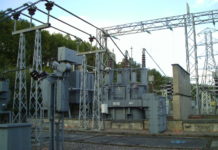Commenting on the impact of the Scottish referendum outcome on the energy market Tony Ward, Head of Power & Utilities at EY UK & Ireland, said: “A ‘No’ vote is important for the whole of the UK in that it allows the established dynamic in the energy markets to continue its current course. “The UK markets have developed ever – closer and more integrated systems and ways of operating that serve to reduce, then smooth, the cost burden across all users. This also enables investment choices to be made on system-wide merit and help achieve a degree of energy security that can often be taken for granted.
“A major uncertainty has been removed by the vote, particularly for those who were evaluating significant capital investments in Scotland. The EMR reforms and further developments of the UK’s competitive retail market can now progress while taking the UK market into account as a whole. “The un-picking of this fully integrated market would have likely led to the creation of a significant degree of asymmetry in the separated markets, particularly in respect of the allocation of costs and assets. This is now smoothed by the ability to adopt a nationwide approach.”
On the impact on renewables Ben Warren, Environmental Finance Leader at EY UK & Ireland, said: “The cost of subsidising renewable energy has traditionally been spread across the UK. Today’s result is positive in that Scotland now won’t be left to pay the lion’s share of subsidies given that this is where most of renewable energy is generated. “The renewables sector still has to face the difficult choices that the new contract for difference (CfD) feed-in tariff regime, the threat of budgetary constraints and further solar subsidy revisions bring, as well as fatigue from constant policy tinkering. And with the current levels of energy market reform underway, the UK’s energy sector was not looking forward to having to digest the impact of an independent Scotland.” “We know how prolonged policy uncertainty can impact the attractiveness and viability of renewables investment and cause project delays. The UK fell to 7th place in the latest Renewable Country Attractiveness Index (RECAI) and we will be reviewing its position moving forward.”



